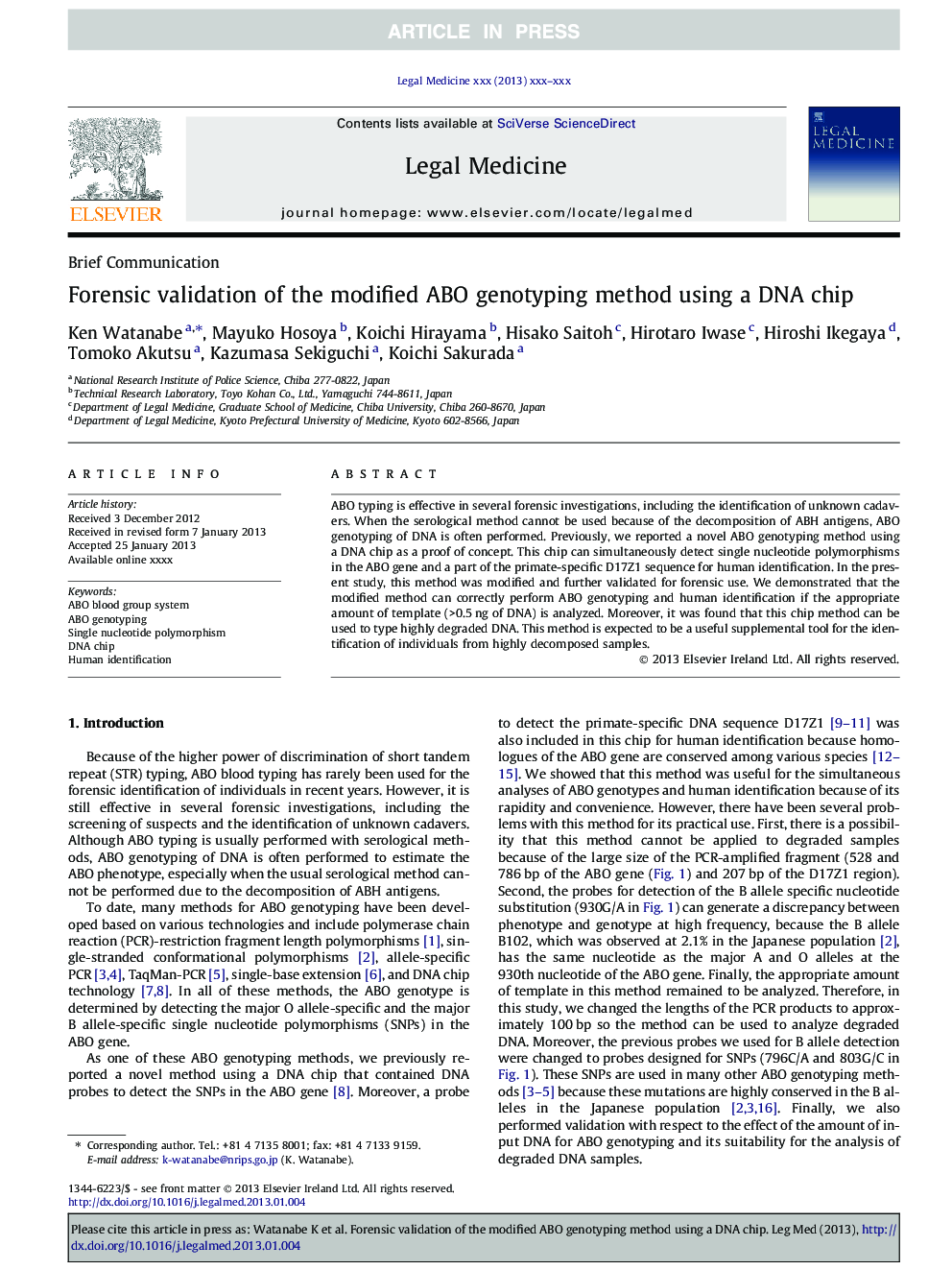| Article ID | Journal | Published Year | Pages | File Type |
|---|---|---|---|---|
| 10254562 | Legal Medicine | 2013 | 4 Pages |
Abstract
ABO typing is effective in several forensic investigations, including the identification of unknown cadavers. When the serological method cannot be used because of the decomposition of ABH antigens, ABO genotyping of DNA is often performed. Previously, we reported a novel ABO genotyping method using a DNA chip as a proof of concept. This chip can simultaneously detect single nucleotide polymorphisms in the ABO gene and a part of the primate-specific D17Z1 sequence for human identification. In the present study, this method was modified and further validated for forensic use. We demonstrated that the modified method can correctly perform ABO genotyping and human identification if the appropriate amount of template (>0.5Â ng of DNA) is analyzed. Moreover, it was found that this chip method can be used to type highly degraded DNA. This method is expected to be a useful supplemental tool for the identification of individuals from highly decomposed samples.
Keywords
Related Topics
Physical Sciences and Engineering
Chemistry
Analytical Chemistry
Authors
Ken Watanabe, Mayuko Hosoya, Koichi Hirayama, Hisako Saitoh, Hirotaro Iwase, Hiroshi Ikegaya, Tomoko Akutsu, Kazumasa Sekiguchi, Koichi Sakurada,
